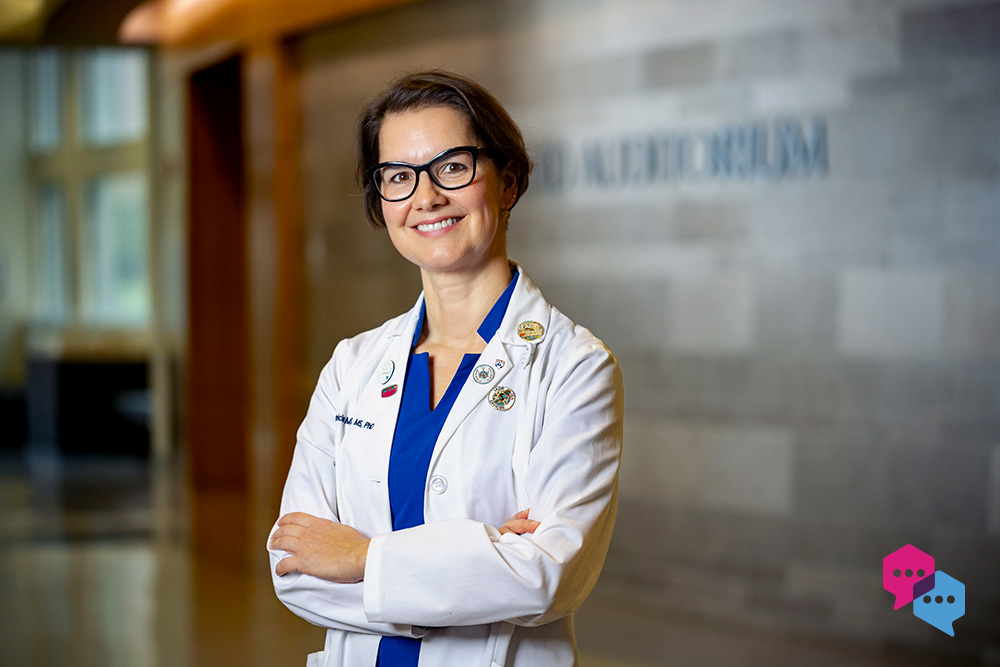Patricia Miguez is an associate professor within the UNC Adams School of Dentistry. She studies novel ways for preventing dentin and bone loss in the mouth and strives to develop therapeutics that control inflammation and promote tissue regeneration.
Q: How did you discover your specific field of study?
A: Since childhood, I have been driven by curiosity to understand the “why” behind things. In dentistry, I was particularly fascinated by periodontology because so much happens around a tooth that determines health or disease, and it is linked to an individual’s overall health. The complexity of the cellular environment surrounding a tooth inspired me to explore the role of the extracellular matrix — a network of proteins and molecules that support cells and tissues in the body — in oral health and disease.
Q: Academics are problem-solvers. Describe a research challenge you’ve faced and how you overcame it.
A: I am intrigued by research on how natural products and chemicals found in plants affect health. Given their ability to interact with a wide range of biomolecules, the challenge lies in developing them into reliable therapeutics for widespread use.
I found that when dentin and bone were exposed to these compounds, they became more resistant to degradation. This discovery led to a series of studies in my lab aimed at characterizing their effects on proteins, cellular gene expression, protein output, mechanical properties, and regenerative outcomes.
Impact Report
![]()
Periodontal disease occurs when the tissues that support the teeth become inflamed and infected, leading to damaged gums and bone loss in the jaw. More than 42% of adults over 30 have some form of periodontitis, according to the National Institutes of Health.
![]()
Projects like Patricia’s are funded by grants from the National Institutes of Health. This funding supports vital research, advancing treatments for the people of North Carolina and beyond.
Now, my team is working with biochemists and clinical pharmacologists to develop localized delivery methods for the most promising compounds, targeting connective tissues rather than relying on dietary supplementation. The way to solve this problem will be with team science.
Q: Describe your research in five words.
A: Wholesome “heeling” of craniofacial tissues.
Q: Who or what inspires you? Why?
A: My parents have built a strong, supportive foundation, and I feel incredibly privileged and grateful to be part of it. My mother has been the glue that holds us together, the motivator who encourages us to aim high, and the driving force behind our pursuit of excellence as a family, including pushing my dad to continue his professional journey beyond the norms of medicine.
My father, a physician in Brazil, exemplifies patience, curiosity, and resilience. Over the years, he has reinvented himself — expanding his expertise into administration, health policy, economics, and financial advising, all while continuing to practice medicine.
Their example inspires me to keep learning, evolving, and pushing myself forward while always knowing that, no matter what, they will have my back when life throws something unexpectedly difficult to deal with.
Q: If you could pursue any other career, what would it be and why?
A: Ballet dancer. I studied ballet well into my teenage years. My daughters have been in ballet since they were 3 years old and are now teens. For us, dance is instant happiness that can push away any negative, intrusive thoughts as we get involved with the music and movements. In a way, it is similar to my academic life in terms of the discipline, devotion, and determination it requires. I still get emotional at ballet performances because it draws me so much into a character’s story and grace every time.


